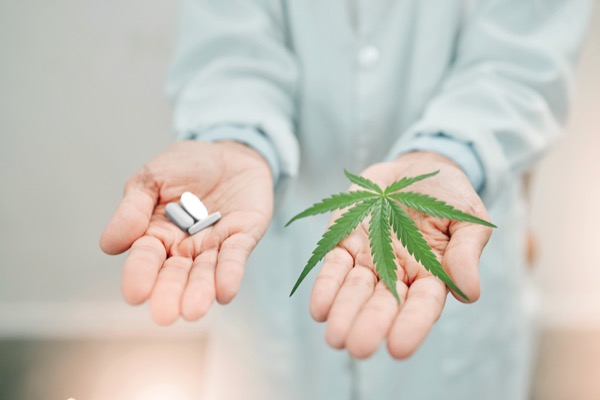Findings from a recent study highlighted the increasing prevalence of treating chronic pain with cannabis and the resulting effects on patients’ pain management.
In a cross-sectional study, from March 3 to April 11, 2022, researchers surveyed a representative sample of adults (>18 years of age) living with chronic pain across 36 states, including Washington, D.C., with active medical cannabis programs (JAMA Netw Open 2023;6[1]:e2249797).
The researchers evaluated four key areas in the survey:
- self-reported use (ever, past 12 months or past 30 days) of medical cannabis;
- pharmacologic treatments (prescription opioids, prescription nonopioid analgesics and over-the-counter analgesics);
- common nonpharmacologic treatments (physical therapy, meditation and/or cognitive behavioral therapy); and
- substitution of cannabis in place of these treatments for chronic pain.
A total of 1,724 people reported living with chronic pain, 1,661 of whom completed the entire survey (57.1% female; mean age, 52.3 years).
The researchers found 31% (95% CI, 28.2%-34.1%) of the adults living with chronic pain reported having tried cannabis to manage their symptoms at least once; nearly 26% (95% CI, 23.2%-28.8%) reported cannabis use for pain management in the past year; and 23% reported use in the last 30 days. The majority of cannabis users reported needing to use at least one additional pharmacologic (94%; 95% CI, 91.3%-96.8%) or nonpharmacologic treatment for their pain (70.6%; 95% CI, 64.8%-75.7%).
The researchers noted that more than half of the surveyed cannabis users reported use of the substance led them to decrease their reliance on prescription opioids, nonopioid prescriptions and over-the-counter pain medications.
“The fact that patients report substituting cannabis for pain medications so much underscores the need for research on the benefits and risk of using cannabis for chronic pain,” said researcher Elizabeth M. Stone MSPH, a PhD candidate at the Johns Hopkins Bloomberg School of Public Health, in Baltimore.
The researchers noted that roughly 39% of the participants with chronic pain reported a decline in use of physical therapy.
They concluded that the high percentages of people reporting cannabis substitution for medications such as prescription opioids warrants more research to clarify the effectiveness and potential adverse effects of treating chronic pain with cannabis.
“Future research should focus on the efficacy of cannabis for managing chronic pain for comparison with other treatment options,” Ms. Stone noted.
This article is from the March 2023 print issue.


